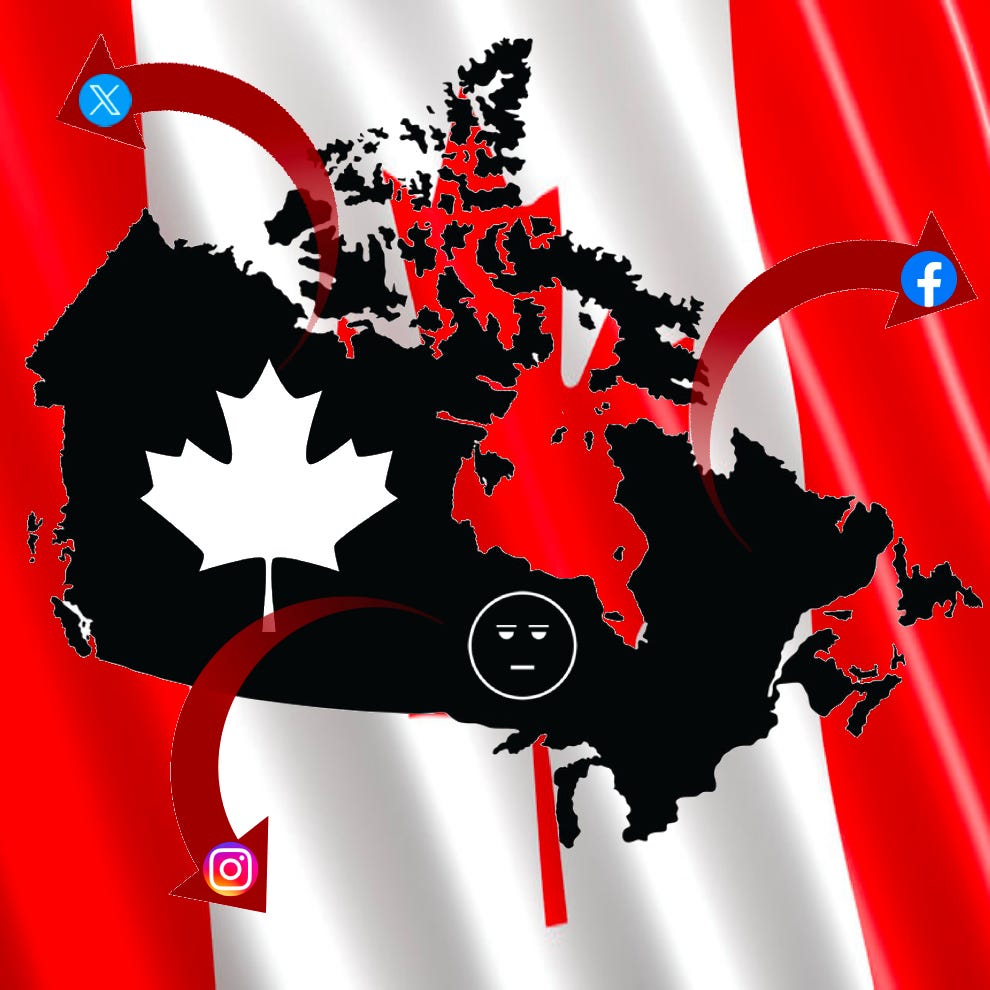Social Media Companies Begin Canadian Blockade
Following the passage of a new law Meta has blocked the sharing of all news articles in Canada
Recently Canada passed the Online News Act requiring social media companies, such as Meta - the parent company of Facebook, to pay news publishers for the right to link to and reproduce their content . Meta and companies like it are resistant to the new regulation and, in response, have instituted geofencing bans preventing users in Canada from sharing news stories. What was the purpose of the new law and how will the current news embargo effect social media companies going forward?
What is the Online News Act?
Canada’s Online News Act was passed into law on June 22nd, 2023. The law created a framework under which social media networks and search engine companies, collectively referred to as digital news intermediaries under the Act, must negotiate with online news publishers to reproduce or link to their work.
Proponents of the Act say that it goes a long way to addressing the imbalance between tech companies, largely centered outside of Canada, and Canadian publishers. Further, supporters such as journalists, academics, and various trade trade associations claim the new framework mirrors similar legislation in Australia which has helped news companies in that country generate revenue and stay afloat. According to Rod Sims, former chair of the Australian Competition and Consumer Commission, "nearly all eligible media businesses in Australia… made deals with Google, while Facebook has entered licensing agreements with publishers that employ around 85 percent of all Australian journalists. Sims also pointed to Country Press Australia, an affiliation of 160 smaller, regional publications, as receiving possibly the highest payment per journalist employed. [1]" The draft rules to enforce thact, some have claimed, would raise 172 million Canadian dollars ($126.6m) per year from Google and about 60 million Canadian dollars ($44m) per year from Facebook.
However, opponents of the Act claim it is nothing more than cash grab by an administration that sees "big tech" as an "ATM". They refer to the law as a “link tax”, as simply sharing the link to an article on a social media platform would trigger the Act, meant to fund Canada's media and publishing industries rather than focusing on "problematic conduct" via information privacy and data governance laws [2].
How Does the Act Work?
Under the terms of the Online News Act eligible news businesses, acting alone or in concert, may initiate mandator bargaining with digital news intermediaries if it is determined that there is a “significant bargaining power imbalance” between the two sides based on size, strategic advantage, and market position.
Businesses eligible under the act for mandatory bargaining include:
A "qualified Canadian journalism organization" under the Income Tax Act.
A licensed community, campus, or Indigenous broadcaster.
A publisher that:
Is devoted primarily to "news content of public interest" and not a specific topic or industry.
Employs at least two journalists in Canada,
Is a member of a "recognized journalistic association" or otherwise has a code of journalistic ethics that follows principles of "fairness, independence and rigor in reporting news and handling sources".
An Indigenous news outlet that publishes news content of general interest, and issues specific to Indigenous peoples in Canada. [3]
Digital news intermediaries, as touched upon above, include most social media networks such as Meta and search engine aggregators like Google.
The process outlined in the act involves three stages; bargaining, mediation, and final offer arbitration. Bargaining is when the two sides negotatiate on their own, mediation is when a third party oversees the negotiations and makes recommendations as to an outcome, and arbitration is when a third party, in this case the Canadian Radio-television and Telecommunications Commission (CRTC), oversees the negotiation and has the power to force a resolution at the end.
Big Tech Responds
Meta, the parent company of Facebook and Instrgam, in response to the passage of the Act (which has not yet gone into effect) have begun blocking the sharing of news articles on their services in Canada. The ban, which effects any device accessing the internet from an IP address registered in Canada, makes the viewing or sharing of news articles within the Great White North impossible.
Meta defended their actions stating that their service does not scrape content from news sources and that news content is not “a draw” for their users [4]. Content scaping is the act of copying unique content from one website and republishing it on another. Further, it should be noted that the data determining what is and is not “a draw” in Canada is wholly controlled by Meta.
Further, Goggle took a similar action claiming they “have informed the Government that [they] have made the difficult decision that when the law takes effect [they] will be removing links to Canadian news from our Search, News, and Discover products and will no longer be able to operate Google News Showcase in Canada” [5].
What Comes Next?
Both Google and Meta claims to be working with the Canadian government and its regulatory process to "move forward" and find a "viable path" toward a resolution. However, when rules to enforce the act were proposed early this month by the Canadian Radio-television and Telecommunications Commission (CRTC) the companies did not seem enthused.
“The regulatory process is not equipped to address the fundamentally flawed premise of the Online News Act,” Rachel Curran, Meta Canada’s head of public policy, said in a statement [6].
The CRTC will now hold public consultations on the proposed rules before finalizing them in the summer of next year. But mandatory bargaining would not start until late 2024 or early 2025, the CRTC has said.





